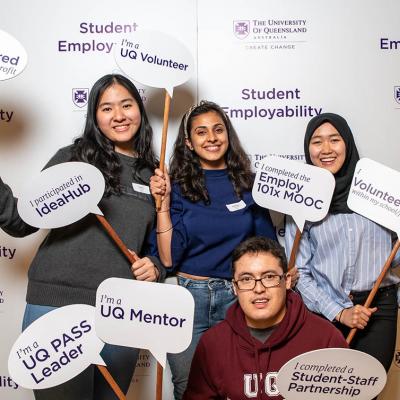Can LinkedIn help you get a job? It certainly can, if you know how to use it correctly.
Even if you don't have a LinkedIn account, chances are you've heard of this social media platform targeted at professionals looking to develop their careers. In a world where you may feel inundated with social media apps, you may be wondering 'do I need LinkedIn to get a job?'. The answer is no, you don't, but it can definitely help. And when you're trying to stand out next to a bunch of other graduates or current students, a little help could be just what you need.
Keep reading for our top 7 do’s and don’ts for making the most of your LinkedIn profile.
1. Do have a profile
Maybe you haven’t bothered creating a LinkedIn profile until now. Or maybe you have one but you ignore it. We really recommend setting up a profile because it can greatly increase your chances of getting a job.
It’s often the first place recruiters go when they’re hiring. And if they like what they see, they might even contact you directly to discuss job opportunities.
Setting up your profile doesn’t take long. An hour or 2 is all you need. You won’t regret it.
2. Don't neglect it
Having a LinkedIn profile is better than not having one, but don’t fall into the trap of creating one, then crossing your fingers and hoping for a job. You don’t need to update it every day, but you should check in regularly to make sure all your information is up to date.
LinkedIn isn’t just about having a great profile though. You can use the platform to connect with people you know (or would like to learn from) or follow companies you’re interested in to engage with their content. Nothing impresses employers more than demonstrating that you understand what’s going on in their industry.
3. Do include that after-school or holiday job
Include any work experience you have, whether it be stacking supermarket shelves, waiting tables, or cooking burgers. Employers love seeing this because it proves that you’ve got experience working in a team and dealing with customers.
If you haven’t had any jobs before, that’s okay too. After all, that’s why you’re studying! Include any other situations where you might have demonstrated employable skills, like organising an event or managing a club. Volunteering experience definitely counts too.
As you progress in your career and gain more experience, you may drop some of these earlier jobs (like delivering local papers or working your first job at a fast-food restaurant) unrelated to your industry from your profile, and that's totally fine (in fact, it's encouraged – see the next tip). While you're building your experience however, outlining these jobs to demonstrate your interpersonal skills is worthwhile.
4. Don't include irrelevant information
With recruiters, you only have a small window to impress before they move on. Don’t waste time filling your profile with waffle. Instead, highlight the things that are relevant to the job or industry you’re looking for.

At UQ, our Employability team helps students prepare for their first job through various workshops, resources and learning modules.
5. Do back up your claims
According to most LinkedIn profiles, everyone is 'passionate, honest, hardworking and always gives 110%'. That’s great – but you’ll never stand out if you’re saying the same as everyone else!
Don’t just tell a prospective employer you’re passionate – prove it. For example, if you want to be a vet, nothing says you love animals more than being a volunteer at the local shelter.
6. Don't be a robot
Employers aren’t just hiring a set of skills to join their team – they’re looking for people. Find opportunities to show off your personality. Make them want to meet you. List some personal interests, such as sporting and creative talents, to show who you are as a person.
7. Do keep it professional
Don’t get carried away when showing off your personality. You still need to keep in mind professional standards. As impressive as it is, your future employer probably doesn’t need to know that one of your skills is the ability to eat an entire hot dog in 5 seconds flat!
The same applies for choosing an appropriate profile picture. Make sure you’re the only one in the photo, and that you’re not doing anything compromising. If you can’t find one, put on your nicest shirt, stand against a white wall and ask a friend to take one for you. Rule of thumb: don’t share anything you wouldn’t want your grandmother to see.
As you can see, not all profiles are created equal. But with these tips, you’ll have a better chance of getting your foot in the door.
While you're improving your LinkedIn profile, you can also start thinking about building up your employability skills. Read up on the types of skills employers are looking for, or explore UQ's huge range of employability resources.





